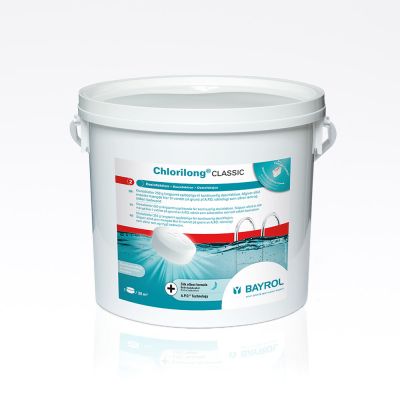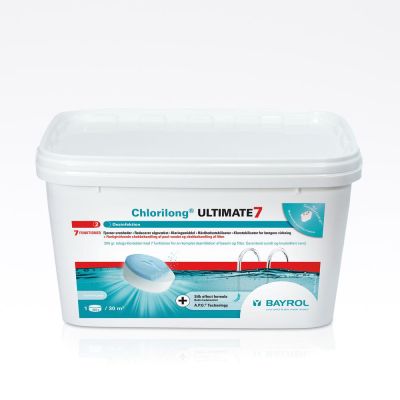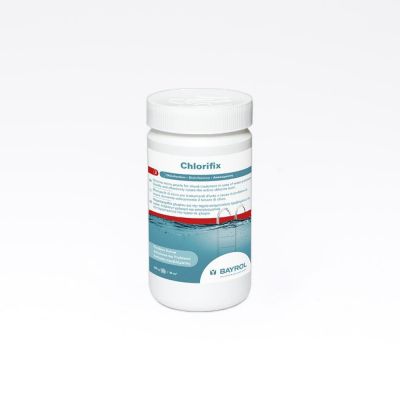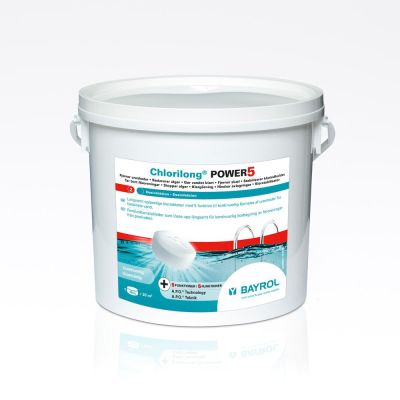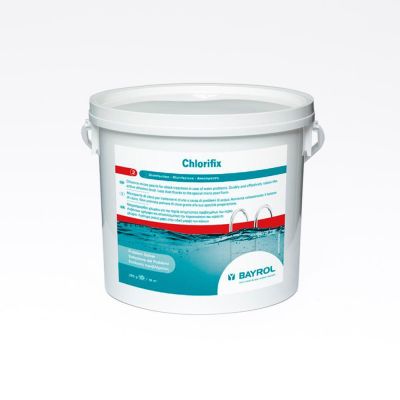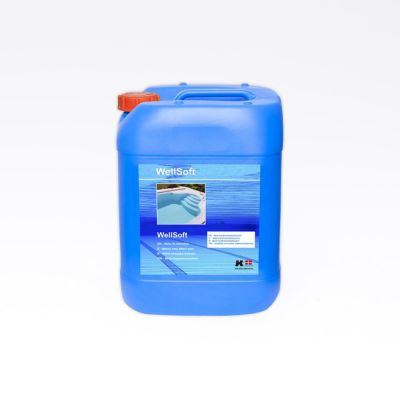Disinfection
(6 Items)After the PH value is adjusted correctly in your pool it´s time for disinfection. Disinfection is the process in water treatment where you disinfect against bacteria.
Within disinfection of poolwater, Chlorine is the main product.
Welldana sells 3 types of chlorine:
- Calcium Chlorine
- Stabilized Chlorine
- Chlorine tablets
Calcium Chlorine:
What is it, and how to use it?
This type of chlorine has been used for many years and is used for daily chlorination. This type is most effective if you have an indoor pool that is being used often. Calcium chlorine is like the name suggests, build on a calcium base with the purpose, to disinfect your pool with long-term dosages, especially in the evenings after the last swim. You take a chlorine test to see the chlorine level in the water, and if necessary, add more chlorine to ensure the best disinfection of the water.
What’s the advantage and disadvantages with calcium chlorine?
The advantage of this type of chlorine is that there is no additives. The disadvantages are that you use more chlorine than with the stabilized chlorine, and it needs to be added every day. Furthermore, the calcium content in the chlorine will affect the PH level upward in the water. Therefore, this has to be watched.
Stabilized Chlorine.
What is it, and how to use?
This type of chlorine content cyanuric acid. This is an agent who stabilize the chlorine, by protecting against UV rays from the sun. This will prolong the effectiveness of the chlorine in the pool water. By using stabilized chlorine, you don’t have to add chlorine as frequent as ordinary chlorine, therefore, less maintenance and less expenses. This kind of chlorine is mostly effective if you have an outdoor pool, because of the protection against UV rays. When you use stabilized chlorine, you regularly have to take a water test of the cyanuric acid so you can keep the content down by backwashing and thereby replacing some of the water.
What is the advantage and disadvantage with stabilized chlorine?
The advantage with this type of chlorine is that you have a prolong stabilization, because the chlorine is binding to the cyanuric acid. This protects against the UV rays, opposite to the calcium chlorine, which decomposes much faster. The disadvantage of stabilized chlorine is that it adds cyanuric acid every time you disinfect and the content in the water can get out of control. If that happens, there can be a chlorine lock.
What is Chlorine lock?
Excessive use of stabilized chlorine can lead to chlorine lock. With stabilized chlorine, you add cyanuric acid into the water and you risk a gain so big, where you excess the recommended level, whereby the free chlorine is being so well protected, that it will probably not work (locked). For your info, you can still measure the chlorine content, but it will have no effect. The only way is to change the water. To avoid that, you can do backwashes and vacuum the bottom regularly.
Chlorine tablets.
What is it, and how to use?
There are different types of chlorine tablets. Generally, most tablets are slowly soluble. You can choose to use the tablets in a dosage unit which floats in the pool water, or you can lay them in the skimmer basket, where the tablets are dissolving slowly and effectively because of the waterflow. Chlorine tablets are normally used in medium to big sized pools, and mostly outdoor pools.
What is the advantaged and disadvantaged with chlorine tablets?
Chlorine tablets are easy to use and have a long-term effect in the pool, because they are slowly soluble in the water, opposite to using the calcium chlorine, which must be dosed daily. The disadvantage is that the tablets contain cyanuric acid as stabilizer, which means you regularly have to measure the content to avoid chlorine lock.





 Catalogs
Catalogs Training Center
Training Center Contact us
Contact us Dealers
Dealers About welldana
About welldana
